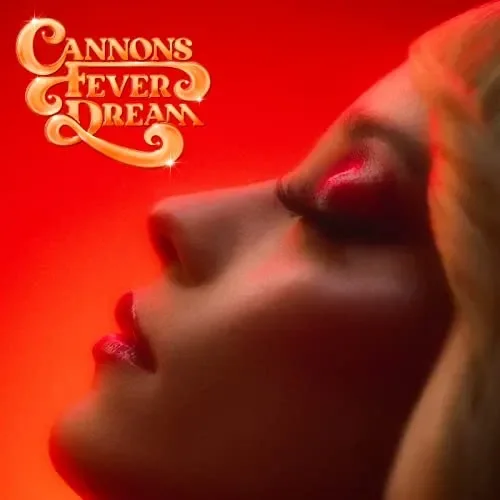The Enchanter of the Deep – Courting Neptune
To romance Neptune is to drift into the depths, where longing dissolves certainty and dreams undress us. He is the lover who enchants through mystery, leaving us bare before the ineffable.
When the Ballroom Turns to Water
Where Saturn commands with discipline and Uranus disrupts with shock, Neptune dissolves. He doesn’t enter the ballroom in any way we’re accustomed to in our “regular reality.” He saunters in to transform it—turning chandeliers into dripping starlight and the polished floor into a sea, weaving music that hypnotizes with longing.
For the past month, since writing about how we might romance Saturn and Uranus, I’ve been trying to express how we might romance Neptune. And of course, that’s the very problem with Neptune. While Saturn strutted into the ballroom in his regalia, and Uranus brought exhilarating, unexpected lightning changes, Neptune played hide-and-seek with me.
He lingered on the edges, peeking from the wings, shimmering just out of sight,
refusing to be caught.
But Neptune has never been far from me. In my chart, he sits in Sagittarius in the 7th house, opposing my Sun, Mercury, and Venus in Gemini, and squaring my Pisces Moon at the Midheaven. A lifelong T-square with Neptune at its heart. Which is to say: I live in a constant push and pull with him.
My childhood and adolescence were filled with vivid dreams and nightmares—torment and initiation in equal measure. Those nightmares eventually led me to work with dreams, to court them instead of fear them. Neptune has always been the lover who undresses me, stripping away the garments of certainty until I stand bare before mystery.
Thanks for reading On Liminality! Subscribe for free to receive new posts and support my work.
The Peril and Ecstasy of Longing
To court Neptune is to be undressed—stripped bare by the longing that lives in every soul. He is the lover who doesn’t rip away our masks but coaxes us to slip them off ourselves, until we are trembling, exposed, and strangely luminous.
To follow him is to risk losing our footing, our desires, even our sense of who we are. It is terror for the ego, but nectar for the dreaming soul.
I know this intimately. My Gemini Sun and Mercury crave clarity, words, and definition, while Neptune in Sagittarius pulls me into tides of silence and unknowing. My Venus, conjunct Mercury, wants to make it beautiful, to turn it into story, while Mars in Pisces squares the whole dance—restless, insistent, pulling me back into Neptune’s waters again and again. My Pisces Moon longs for transcendence, but Neptune ensures that transcendence never comes neatly wrapped—it arrives with sacrifice, with disorientation, with the ache of longing. This is the architecture of my life: the push to articulate, the pull to dissolve, the endless swell between word and wave.
We are enthralled by Neptune in stories that seize us like an undertow. He is kryptonite to the left‑brain’s self‑importance, dissolving the Cartesian walls we build around reason.
Uranus may revel in our technological spires, and Saturn may applaud our discipline, but Neptune will wash it all away if unacknowledged. Left dishonored, he brings nightmares instead of dreams, fool’s gold instead of treasure, paranoia instead of vision.
We misunderstand him at our peril.
And yet, his gifts are as profound as his shadows. Neptune offers compassion that dissolves the boundary between self and other. He opens the imagination, where art, music, and story pour through us like water. He grants transcendence, the capacity to glimpse the divine shimmering in the ordinary. He is the dreamer’s dream, the mystic’s vision, the artist’s muse—the lover who undresses us not to shame, but to reveal what lies beneath.
Our culture easily celebrates Saturn’s solidity and Uranus’s sparks, but our neglect of Neptune shows in our sleep crisis, our depression, our mob psychologies. Even the endless films and stories streaming across our screens—constant Neptunian transmissions—are dismissed as “just stories,” when in truth they are collective dreams with the power to shape reality.
Saturn may receive the accolades for giving form, but he is only the vessel through which Neptune’s dream takes shape. Reality begins in the Dreaming, in that realm our left brains cannot grasp but our souls know too well.
From the dream, things are made into being—and that is Neptune’s domain.
Whispers in Story, Song, and Dream
Closer to our humanity, we meet Neptune in stories. He shimmers in the Phantom’s gothic allure, in Tristan and Isolde’s intoxicating passion, in Gatsby’s shimmering dream. These are not just tales to me—they echo the way Neptune has haunted my own nights, luring me into the uncanny and dissolving the line between dream and waking.
This year I’ve embraced his call more consciously through imagination. I’ve been devouring romance novels, especially the monster sub‑genre. On the surface, it might look like escapism, but I sense something deeper: that through these stories I’m not only working with my own Neptunian longings, but also listening for a collective dream.
These uncanny lovers and liminal worlds feel like Neptune whispering through the culture, asking us to shed our old identities and step into the unknown together.
This past month, as I wrestled with how to write about romancing Neptune, I found myself listening on hypnotized loop to Cannons’ 2022 album Fever Dream. To me, the entire album is an ode to Neptune’s many‑faceted expressions. Come Alive is a hymn of enchantment, while songs like Tunnel of You, Bad Dream, Only You, and Goodbye speak to heartbreak and longing.
Pause here.
Put on Come Alive. Let Michelle Joy’s breathy, sensual voice carry you. Close your eyes. Feel how the song undresses you of the day’s armor, dissolving edges until you are adrift in longing. This is Neptune’s courtship.
I also found myself enthralled by Neptune in the Netflix series The Sandman. I hadn’t read the graphic novels, but the ethereal atmosphere of the show transported me into a Neptunian dream. Morpheus, Dream of the Endless, is Neptune personified: creator of dreams and nightmares, prisoner of longing, sovereign of the Dreaming. Watching the series at night became an initiation, filling my sleep with vivid, uncanny visions that felt like Neptune himself slipping into my dreams.
Still from The Sandman - Netflix - Dream (Tom Sturridge) surveys his castle in ruins after his escape from prison.
Surrendering to the Fog
For me, Neptune is also kin to the monsters I’m writing about in my other publication: The Healing Power of Fluff. He is the uncanny figure who pulls us into the strange and the unknown, meeting us in liminal spaces filled with fog and magic. Neptune doesn’t rip away our masks; he intoxicates us into slipping them off ourselves. It is an inebriated undressing, a dissolving of the layers Saturn once insisted we needed.
So how do we court Neptune?
Not by grasping, but by surrender.
By creating atmosphere—music, twilight, imagination, magic. By answering the call of the dream, the longing, while risking disillusionment and knowing the dream may dissolve. By moving toward the fog at the edge of the known and allowing ourselves to be enchanted. By learning not to panic when lost or adrift, but to accept it as part of Neptune’s undressing of our old identities.
To follow Neptune is to step into mystery, to let ourselves be undone, and to discover that in the dissolution, something other—something divine—shimmers through. He is not a lover we conquer, but one we allow to dissolve us.
Thanks for reading On Liminality! This post is public so feel free to share it.
Your Turn to Court Neptune
If you’d like to romance Neptune yourself, begin by setting the atmosphere. Choose twilight or evening, when the edges of the day blur, and light a single candle or let the moon be your guide. Put on music that feels hypnotic or otherworldly—Cannons’ Come Alive is my personal hymn to Neptune, but any song that transports you will do. Let the sound wash over you as if it were water dissolving the edges of your day.
Close your eyes and imagine slipping off the garments of the day—roles, responsibilities, identities—one by one, until you are bare before the dream.
In that openness, whisper to yourself:
What dream longs to be dreamed through me?
Don’t force an answer; allow images, sensations, or fragments to drift in like tide and foam. When you feel complete, blow out the candle or step back into the light, carrying with you whatever shimmered through. You may wish to jot down any impressions, but even if nothing comes, trust that Neptune has been courted in the act of surrender itself.
To romance Neptune is not to capture him, but to let him dissolve us. It is to follow the song into the depths, to risk being undone, and to discover that in the dissolution, something other—something divine—begins to gleam. We do not return from Neptune unchanged.
Ease & Grace
Vanessa Couto





